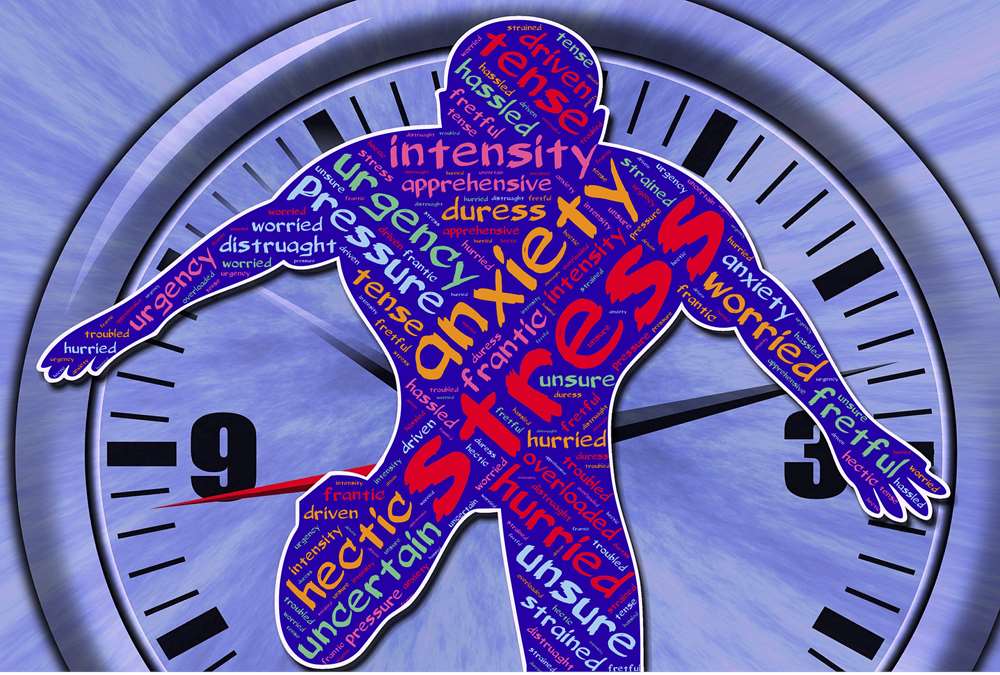
Evidence of the medically detrimental symptoms of work stress requires the application of stress management treatment. Stress management attracts the attention of management experts not only as a corrective measure, but also as a means of resource management. If the workplace can be made a little more pleasant, the increase in performance of the organization can be much longer. If group stress can be eliminated by introducing group discussions and recreational facilities, a lasting team spirit can develop.
Stress management techniques
Stress management techniques range from simple techniques like using self-help to manage stress to more elaborate techniques where you involve others and take their help. It has already been stated that high stress levels or even low stress levels sustained over a long period of time can adversely affect employee performance and therefore require management action.
1. Problem-focused coping
This technique involves planned actions to bring about a change in stressful conditions by acting on the environment or on oneself. Some of the strategies used in this type of coping are active coping (where the individual actively tries to suppress a stressful situation), planning, conflict coping, and suppression of competing activities.
2. Emotion-focused coping
This technique involves trying to reduce the emotional distress associated with a stressful situation without actively trying to change the situation itself. This could include accepting reality, positive reinterpretation, seeking alternative rewards, reducing tension, wishful thinking, and denial. Based on these approaches, there are several stress management techniques. Before discussing the techniques, let’s see why different people deal with stress in different ways.
3. Employee Assistance Programs (EAP);
The first of the forms of stress management practices is employee assistance programs (EAPs), which refer to the provision of counseling services to employees by an organization. The precursor to EAPs was the counseling program started at the Western Electric Company’s Hawthorne Works in Chicago in 1936 with one counselor and ended in 1956 with five counselors. EAPs take a holistic view of the employee so they can seek advice on almost any issue. This can provide employees with easy access to trained advisors who gain personal insight and practical solutions.
4. Stress management training
Stress management training (SMT) refers to training courses designed to provide employees with better coping skills, including training in techniques such as meditation, biofeedback, muscle relaxation and inoculation stress. This method, which has grown in popularity in recent years, is designed to relieve tension and reduce frustration. By helping their employees learn stress management skills, organizations promote workforces that are committed to being effective cops, the definition of which is directly tied to their job performance. Through an introduction to stress concepts, the employee learns to beware of stress.
5. Stress Intervention
More or less explicit rules of feeling are established and generally, they are already part of some professionals, especially caregivers. For example, police officers are taught and trained to control their anger when provoked, and doctors are expected to react coldly and dispassionately to the ailments their patients bring. Indeed, being professional has come to entail a set of rules about doing emotional distance work from the client or client with heavy penalties against “too personal involvement”. That’s the theory. However, some sentiment rules are likely to be very resistant to change.
6. Individual strategies for coping with stress
Individual approaches or strategies that have been shown to be quite effective in reducing stress include implementing time management and delegation techniques, increasing physical exercise, and practicing deep breathing and relaxation techniques, and expanding the social support network. Studies have found that yoga has cured or helped control several stress-related illnesses – reducing blood pressure, controlling asthma and neuroticism. Employees must first help themselves and others to regularly review their relationship with their work. They can, in the process, identify such routines and practices that seem to trigger stress, change what you can realistically work with what you can’t.
7. Organizational stress management strategies
A few contributors to stress come from organizational structure and management. Organizational strategies that have proven effective include improving personnel selection and placement, using realistic goals, redesigning jobs, increasing employee involvement, improving organizational communication, and implementation of wellness programs.
It is found that people with little experience tend to be more prone to stress. Although management should not restrict the hiring of experienced individuals with an internal locus, these individuals may adapt better to high-stress jobs and perform those jobs more effectively. Similarly, individuals perform better when they have specific, challenging goals and receive feedback on their progress toward those goals. Using goals can reduce stress and provide motivation.
Management should also consider redefining jobs. This gives employees more responsibility, more meaningful work, more autonomy and increased feedback and can reduce stress, as these factors give the employee greater control over work activities and reduce dependency on towards others. Therefore, an organization should establish a stress management strategy as part of an employee health and performance improvement policy.
Related links
You May Also Like Time Management Skills | Defining Team and Teamwork | Time management process | Eight types of teams | Benefits of Workplace Teams | Creating Highly Effective Teams | Team Development Phases | Assault Stage of Team Development | Tools to grow your team | Share information with your team | Team Development by Building Trust | benefits of empowerment | Reasons for wasting time | Tips for effective time management | Assess your career values | Concept and definition of stress | Consequences of stress | Dealing with stress at work | Is stress always bad? | Know yourself and your values | Overview of Stress Management | Recognize stress and its sources | Business change triggers
Creation date Monday, October 19, 2020 Views 3716
